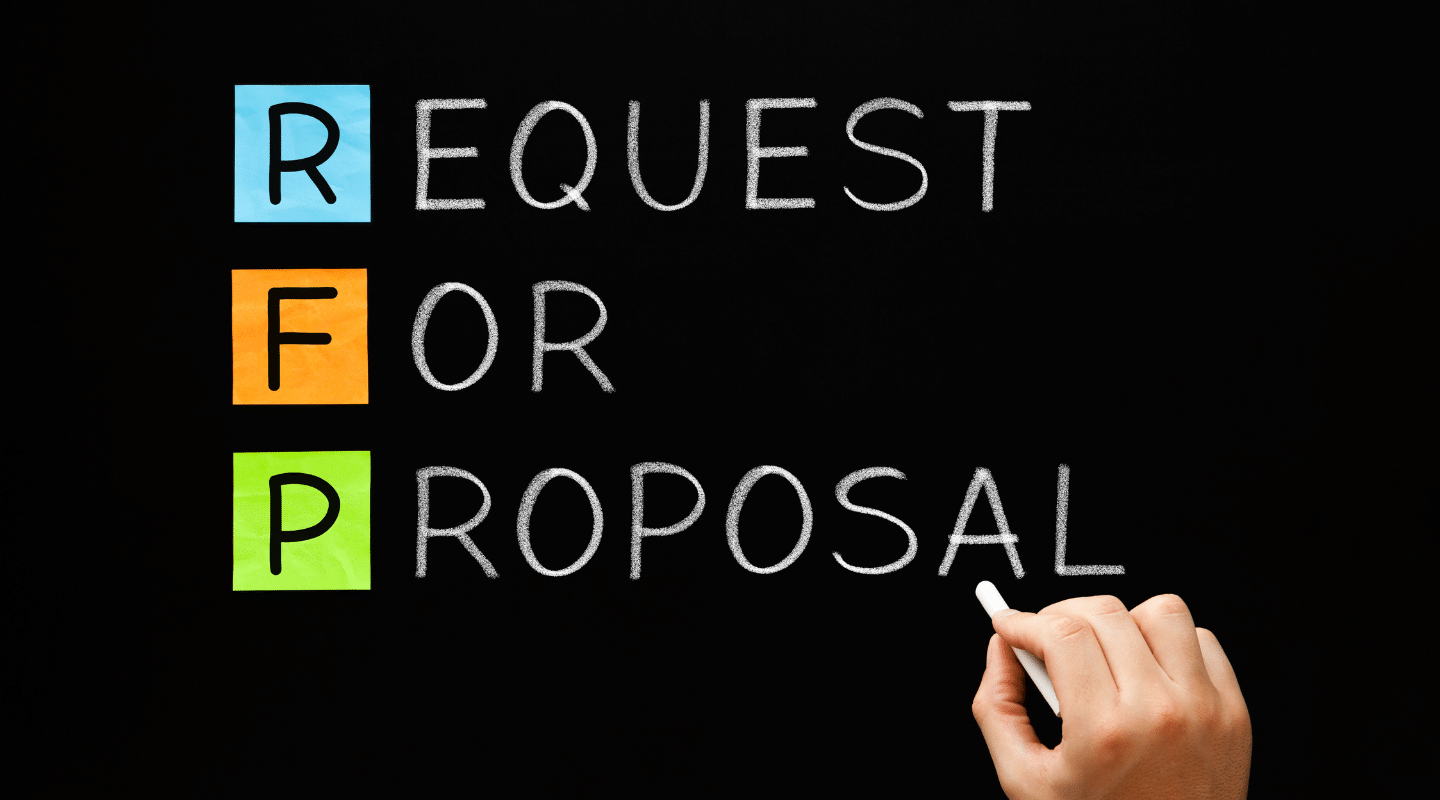For forward-thinking corporate and Government legal departments, the Request for Proposal (RFP) is a key tool for sourcing the right legal expertise and demonstrating value. A well-executed RFP process ensures that in-house legal teams secure the most suitable legal services for their needs and cultivate a partnership based on mutual understanding and value.
This article aims to demystify the RFP process, offering actionable insights and strategies to master this crucial legal procurement tool, including integrating spend management platforms to streamline and enhance the process.
Understanding the essence of RFPs
An RFP is a formal document issued by an organisation seeking to acquire services or products. Specifically, in legal services, it outlines the company’s legal needs, inviting law firms to propose how they would meet these requirements, detail the scope of their services, and provide a transparent fee structure. The RFP process allows in-house legal teams to compare offerings, assess compatibility, and make informed decisions based on a comprehensive view of potential legal partners.
The strategic importance of RFPs
For general counsels, RFPs are more than a procurement tool; they are a strategic asset that aligns legal services with organisational objectives. They encourage competition, foster innovation, and ensure cost-efficiency among legal service providers, all within a structured framework that evaluates prospective partners’ expertise and value proposition.
Crafting an effective RFP
The effectiveness of an RFP hinges on its clarity, comprehensiveness, and relevance. A well-constructed RFP attracts the right law firms and sets the stage for a successful, long-term partnership. Here are key elements to consider:
Define your objectives clearly
Begin with clearly articulating your legal needs and objectives, including whether this is an RFP to refresh your legal panel or a matter-based RFP for a specific transaction or project. A detailed description of your requirements will help potential providers tailor their proposals to your specific needs.
Scope of services
Detail the scope of services required, including any specific tasks or responsibilities the law firm is expected to undertake. This section should outline the desired outcomes, deliverables, and any other expectations you have from your legal service provider.
Evaluation criteria
Establish transparent criteria for evaluating proposals. This may include expertise in a particular legal domain, innovative service delivery models, cost-effectiveness, or the firm’s track record in handling similar legal matters. Clearly defined evaluation criteria ensure a fair and objective selection process.
Budget and fee structures
Discuss your budget constraints and preferences for fee structures (e.g., fixed fees, fee estimates, retainer agreements). From the outset, transparency about budget and fees can help law firms propose competitive and financially viable solutions for both parties.
Timeline and milestones
Include a timeline for the RFP process, from submission deadlines to decision dates. This helps manage expectations and ensures that the process moves forward efficiently.
The benefits of using an RFP and spend management platform together
Integrating the RFP process into a spend management platform can transform how in-house legal teams manage and evaluate legal services procurement. These platforms offer several advantages:
Streamlined process management
Spend management platforms can provide tools for automating and managing the RFP process, from the issuance of the RFP and comparing responses through to engaging the selected law firm. This automation reduces the administrative burden and enables legal teams to focus on strategic evaluation and decision-making.
Enhanced data analysis
These platforms offer advanced analytics capabilities, allowing teams to assess proposals based on various metrics, including cost efficiency, service scope, and provider performance. This data-driven approach facilitates more informed and objective decision-making.
Budget and spend visibility
Spend management platforms offer unparalleled visibility into legal spend, enabling teams to track invoices and work-in-progress against budget allocations in real-time. This visibility supports more accurate budgeting and financial planning for legal services.
Strategic cost optimisation
With detailed insights into legal spend patterns and provider performance, these platforms empower legal teams to negotiate more effectively, identify cost-saving opportunities, and optimise their legal services procurement strategy over time.
Collaboration and accountability
When an RFP process is integrated into a spend management platform, there is an opportunity to enhance and elevate collaboration and communication with the engaged law firm. In practical terms, this means having a collaboration workspace where the agreed scope of work and approved budget are accessible and visible to both sides. Any changes to the scope of work can be formally reviewed and approved, ensuring that the selected law firm is held accountable and thus effectively eliminating poor pricing behaviours, such as a ‘land and expand’ approach.
The selection process: Beyond the proposal
Successful partnerships are built on more than contractual agreements and short-term financial incentives. They thrive on a shared commitment to achieving the organisation’s legal and business objectives. As you navigate the RFP process, foster a partnership mindset by:
- Engaging in open and honest communication about expectations and concerns
- Seeking innovative solutions that add value beyond traditional legal services
- Building relationships based on trust, transparency, and mutual respect
- Gathering data from both parties to inform continuous improvement strategies
Conclusion
As legal departments face increased downward pressures on costs and the growing demand to demonstrate value, adopting a structured and strategic approach to the use of RFPs will be a critical tool. Moreover, navigating the processes and intricacies of legal services procurement with confidence and success will become a core competency for legal professionals.
By approaching the RFP process with a strategic mindset, focusing on clarity, relevance, and comprehensive evaluation criteria, in-house legal teams can establish partnerships that not only meet their current legal needs but also support their long-term strategic goals.
Discover Lawcadia’s Spend Management and RFP platform via the button below:

